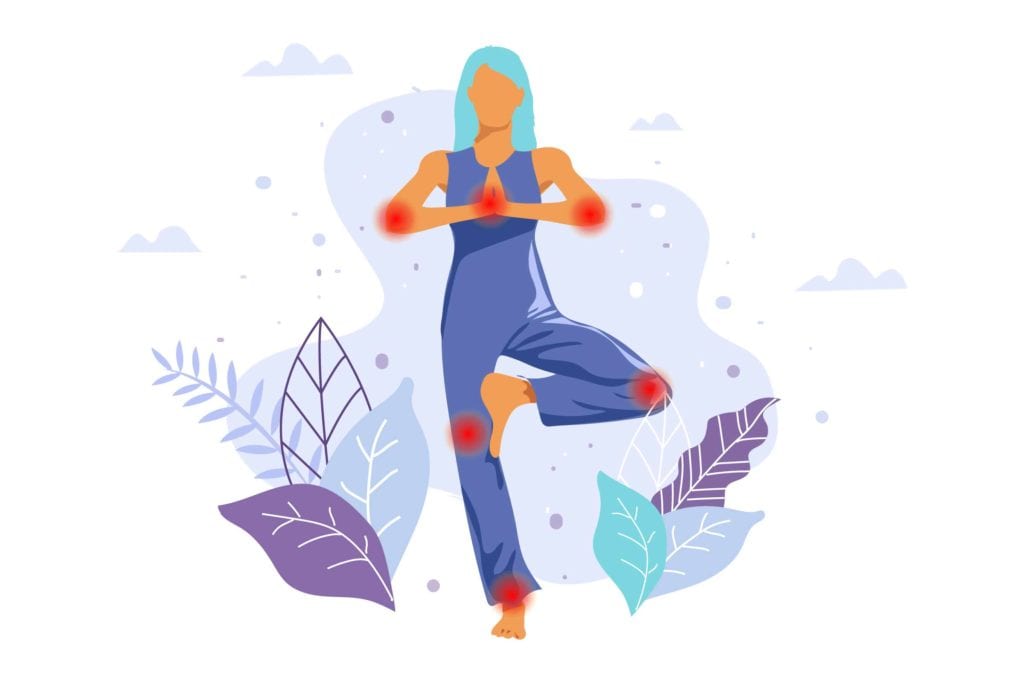

Yoga is well-known for helping practitioners decompress and improve their flexibility. Now a small study shows that it may also help alleviate rheumatoid arthritis (RA) symptoms and may even lead to improvements in disease activity.
The study, published in the journal Restorative Neurology and Neuroscience, involved 72 RA patients, half of whom were randomly assigned to practice yoga for 120 minutes, five days a week for eight weeks, in addition to taking disease-modifying standard medication. The other group took medication but did not practice yoga.
After eight weeks, the disease activity scores among the yoga group participants had significantly improved. They also had a decrease in depression symptoms and inflammatory markers in their blood went down. The authors concluded that yoga aids “remission at [the] molecular and cellular level,” leads to a “significant reduction in depression,” and “can be used as a complementary/adjunct therapy” for inflammatory arthritis.
Although this study is unique in that it looked at the impact of yoga on biomarkers, it is not the first study to examine the impact of yoga on RA. Several older studies have found that yoga has both physical and psychological benefits for people with RA, including reduced pain, improved function, and better mental health.
Doctors now routinely recommend that people with rheumatoid arthritis stay as active as possible, and low-impact activities like yoga are generally safe picks for those with joint problems.
However, you may need to modify certain postures to avoid straining joints that are inflamed, especially during disease flares. Also, this study had participants doing two hours of yoga a day for five days a week, which is likely impractical for many peoples’ schedules.
If yoga’s not your thing, try walking, Tai Chi, or swimming. Whatever you choose, aim to incorporate some flexibility/stretching, strengthening moves, aerobic activity, and balance-building exercise into your routine.
Find out more about the importance of staying active with arthritis.





